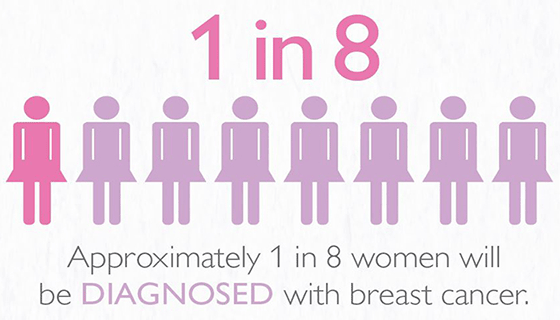Breast cancer is one of the most prevalent cancers in the world, with 1 in 8 women developing invasive breast cancer every year in the United States alone. In fact, it is estimated that more than 268,600 new cases of invasive breast cancer will be diagnosed in the US in 2019. With statistics like this, it’s obvious why there has been a worldwide crusade to stop breast cancer in its tracks. Anything that could possibly reduce the risk of developing the disease should be taken seriously and that is why people are thrilled to see what new research has found about a method of prevention.
According to the US Preventive Services Task Force (USPSTF), women with a high risk of developing breast cancer may be able to lower that risk by taking certain medications. (Women with a family history of breast and ovarian cancer are considered at high risk. Other factors can be at play as well.) Looking at 46 different studies with over 5 million collective participants, USPSTF has determined that women with at least a 3% risk of developing breast cancer in the next 5 years may benefit from taking risk-reducing medications. This is great news for many women around the world, but what medications are they referring to?
Which Medications Have Been Linked To Lowering Breast Cancer Risk?
In 2013, both tamoxifen and raloxifene were linked to lower risks of breast cancer, but this new research has expanded the list of medications that can decrease the likelihood of developing breast cancer. Thanks to this new insight, the USPSTF is now adding aromatase inhibitors to that list. This includes exemestane and anastrozole. They do not know the exact reason, but these medications have been shown to decrease breast cancer risk. It is worth noting, the FDA has not approved any of these medications for the use of lowering breast cancer risk.
Should You Take Medications To Prevent Breast Cancer?
It is important tot remember that these medications are not foolproof ways to prevent breast cancer. They merely lower the risk, not eliminate it altogether. As to whether or not you should begin taking one, that depends on your level of risk. Women with multiple risk factors, including family history, should consider these medications as a preventative method.
Women with no known risk factors should weigh their options, seeing as the medications do come with side effects. Side effects like nausea, vomiting, dizziness, and even blood clots may not be worth it for women who are already at low risk for developing breast cancer. In these cases, the risks will likely outweigh the benefits and patients are not advised to take these medications.



